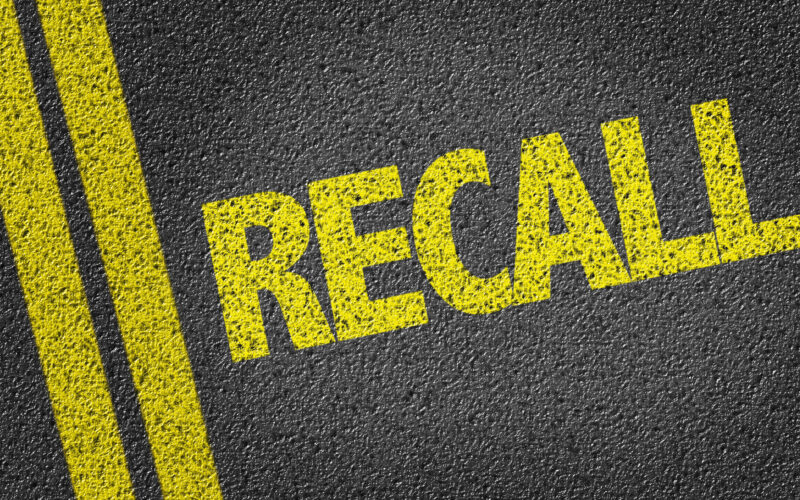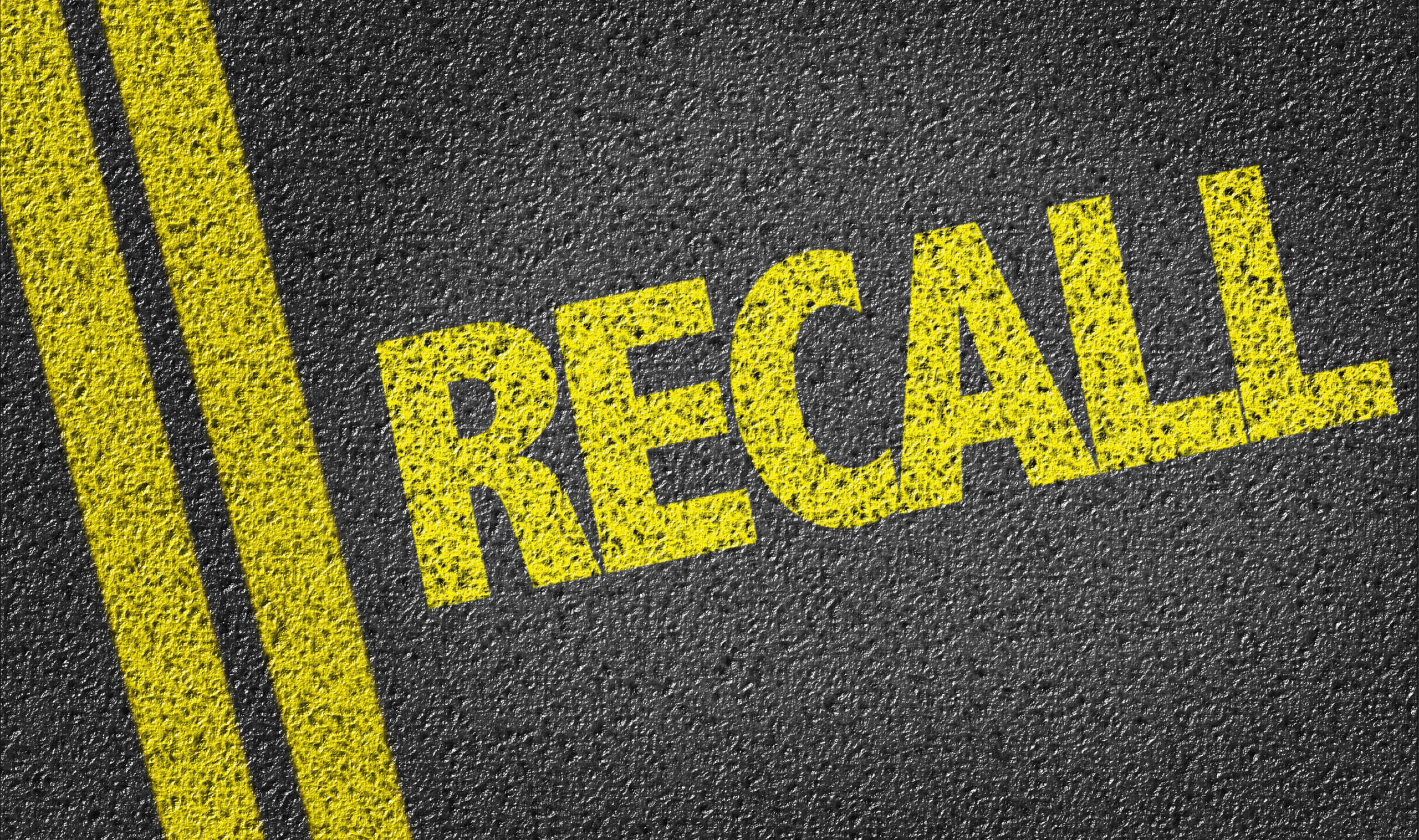Clearwater, FL — Defective HVAC System Spurs Recall of Over 90,000 Vehicles
17Sep
Clearwater, FL (September 16th, 2025) – Toyota, Lexus, and Subaru have issued a significant recall affecting their electric and hybrid vehicles due to defective HVAC systems that could impair driver visibility and dramatically increase crash risk. When you turn the key in your vehicle’s ignition, you trust that every system will work as designed to keep you and your passengers safe. Unfortunately, this recent recall announcement has shaken that trust for over 90,000 drivers across the nation.

If you’ve been injured in an accident involving one of these recalled vehicles, or if you own an affected car and are concerned about your safety, you don’t have to navigate this complex situation alone. The experienced legal team at Light & Wyatt Law Group understands the impact that defective automotive systems can have on families throughout Florida.
Need immediate legal guidance? Call us today at 727-499-9900. We’re here to help residents in Spring Hill, Clearwater, and throughout the Tampa Bay area understand their rights and options.
Table of Contents
Understanding the Scope of the HVAC Recall Crisis
The National Highway Traffic Safety Administration (NHTSA) has confirmed that this automotive defect recall affects specific model years of three major automotive brands. The recalled vehicles include 2023 to 2025 Toyota bZ4X electric SUVs, Lexus RZ luxury electric SUVs, and Subaru Solterra electric crossovers. These vehicles share similar HVAC system components that have proven to be dangerously defective under certain operating conditions.
The core problem centers on the heating, ventilation, and air conditioning systems in these vehicles. When drivers attempt to defrost their windshields or maintain proper cabin temperature during Florida’s humid conditions, the HVAC system may fail to function correctly. This malfunction can leave drivers with impaired visibility at critical moments, creating an immediate safety hazard that can lead to serious accidents.
What makes this recall particularly concerning is the timing and circumstances under which these failures occur. Florida drivers rely heavily on their vehicle’s climate control systems year-round, whether they’re dealing with morning condensation, afternoon thunderstorms, or the transition between air-conditioned interiors and humid outdoor conditions. When these systems fail during critical driving moments, the results can be catastrophic.
How Defective HVAC Systems Create Dangerous Driving Conditions
Vehicle HVAC systems serve an important safety function beyond simple comfort. The defrost feature, in particular, plays a vital role in maintaining clear visibility by removing condensation, frost, and fog from windows. When this system malfunctions, drivers may find themselves operating their vehicles with significantly reduced visibility, especially during early morning hours or in changing weather conditions common throughout Florida.
The defective HVAC systems in the recalled vehicles can fail in several ways. Some units may not produce adequate airflow to clear fogged windows, while others might fail to reach the proper temperature needed for effective defogging. In some cases, the system may work intermittently, creating a false sense of security before failing when drivers need it most.
These visibility impairments don’t just inconvenience drivers. They create genuine safety emergencies. When a driver cannot see clearly through their windshield, their reaction time to hazards decreases dramatically. They may fail to notice pedestrians, cyclists, or other vehicles in time to avoid a collision. On Florida’s busy highways and congested urban areas like those around Clearwater and Spring Hill, even a few seconds of impaired visibility can result in life-changing accidents.
The Legal Implications of HVAC-Related Vehicle Accidents
When a defective automotive component contributes to an accident, the legal landscape becomes complex. Victims may have grounds for claims against multiple parties, including the vehicle manufacturer, component suppliers, and potentially the dealership where the vehicle was purchased. Understanding these legal avenues requires experienced guidance from attorneys who specialize in automotive defect cases.
Product liability law recognizes that manufacturers have a fundamental duty to produce safe vehicles. When they fail in this duty—whether through design defects, manufacturing errors, or inadequate warnings—they can be held legally responsible for the injuries that result. In the case of these HVAC system defects, manufacturers knew or should have known about the safety risks these systems posed to drivers and passengers.
The recall itself serves as powerful evidence that the manufacturers acknowledge a safety defect exists. However, the timing of when companies issue recalls versus when they first become aware of problems can be a crucial factor in legal cases. Often, manufacturers have internal data showing potential safety issues long before they inform the public or issue official recalls.
For accident victims, documenting the connection between the HVAC system failure and their crash becomes essential. This might involve preserving the vehicle for expert inspection, obtaining weather records from the day of the accident, and gathering witness testimony about visibility conditions. These cases require thorough investigation and often benefit from accident reconstruction experts who can demonstrate how the defective system contributed to the collision.
The Financial Impact of HVAC-Related Accidents on Florida Families
Vehicle defect-related accidents create substantial financial burdens for families, often resulting in severe injuries due to drivers’ inability to react appropriately when safety systems fail unexpectedly.
When families face accidents caused by defective HVAC systems, the financial consequences extend far beyond immediate medical bills. Victims may require extensive rehabilitation, face permanent disabilities that affect their earning capacity, and need ongoing medical care for years to come. The psychological trauma of being involved in a serious accident, especially when caused by a defect the victim couldn’t have prevented, can also require professional counseling and support.
Lost wages during recovery periods can wreak havoc on family finances, especially if the primary breadwinner suffers serious injuries. Some victims never fully return to their previous level of employment, creating long-term financial hardship that extends for decades. These economic impacts underscore why it’s so important for Clearwater car accident victims to pursue full compensation for their losses, rather than accepting quick settlement offers that may not adequately address their needs.
Steps to Take If You Own a Recalled Vehicle
If you own one of the vehicles affected by this HVAC recall, taking immediate action protects both your safety and your legal rights. First, contact your authorized dealer to schedule the necessary repairs as soon as possible. Keep detailed records of all communications with the dealership and manufacturer, including dates, times, and the names of people you speak with.
While waiting for repairs, exercise extra caution when driving, especially during conditions that require defrost operation. Consider alternative transportation for essential trips if weather conditions make driving unsafe. If you experience any HVAC system problems before repairs are completed, document these incidents thoroughly with photographs, videos, and written descriptions.
Maintain all documentation related to the recall, including official notices, repair records, and any expenses you incur due to the defective system. If the defect causes you to miss work, incur rental car expenses, or face other financial losses, keep detailed records of these costs as they may be recoverable in legal action against the manufacturer.
Never attempt to modify or repair the HVAC system yourself, as this could void warranty coverage and potentially compromise any legal claims you might have. Even seemingly minor modifications could be used by manufacturers to argue that your actions, rather than their defective product, caused subsequent problems.
Protecting Your Rights After an HVAC-Related Accident
The aftermath of any serious vehicle accident can feel overwhelming, but when that accident involves a defective automotive system, the complexity increases significantly. You shouldn’t have to face automotive manufacturers and their legal teams alone while you’re trying to recover from injuries and get your life back on track.
At Light & Wyatt Law Group, we focus on the practical aspects of building your case while you concentrate on recovery. Our team handles the detailed investigation, expert coordination, and manufacturer negotiations so you don’t have to navigate these complexities during an already difficult time.
Ready to discuss your case? Call Light & Wyatt Law Group today at 727-499-9900 or visit us at our convenient locations in Spring Hill and Clearwater.
